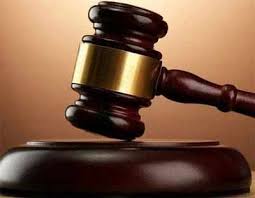Manik Mahey
The Delhi Chief Minister, Arvind Kejriwal is presently undergoing trial in a money laundering case having been charged with various provisions of the Prevention of Money Laundering [“PMLA”] Act, 2002 for his alleged involvement in the in famous Delhi Liquor Policy Case which pertains to the irregularities arisen out of the Delhi Excise Policy (for Liquor) of the year 2021-22.
Kejriwal was arrested on March 21 this year since when he has been under the judicial custody. He was granted 21 days’ interim bail by the Supreme Court on May 10 thereby, allowing him to undertake the campaign for the Lok Sabha elections, subsequent to which he had surrendered again on June 2.
The fresh bail application(s),which were filed seeking release of Kejriwal, came to be listed before the Vacation Judge of Delhi’s Rouse Avenue Court particularly, the Court of Special Judge (PC Act), CBI-13, Rouse Avenue District Court, New Delhi. After an elaborate hearing, the bail was granted to Kejriwal on June 20. However, the bail was stayed by the Delhi High Court vide its Order dated June 21. A Special Leave Petition before the Supreme Court was also filed against the Order of the High Court, which was subsequently, withdrawn on June 26.
The case under reference holds high political value as it involves the arrest of a sitting Chief Minister. It has consequently, been receiving massive attention both from the Media and the general Public.
As the reports regarding the June 20 bail Order disclosed the name of the judge granting it, not only various reactions were seen getting generated across the Social Media platforms against the former, even the pictures of the concerned judge were also seen circulating. Though there is no specific bar on the practice of revealing names of the judges, the question that arises for consideration is; whether it is necessary or even relevant to disclose the name of the ‘Judge’ passing the Orders, when the inference can easily and unambiguously be drawn by mentioning the name of the relevant Court.
The debate on the subject becomes important as the reports regarding the hesitation in granting bails by the members of the lower judiciary as also, the pressures faced by them, are no secret.
The Chief Justice of India, D.Y. Chandrachud while addressing the issue during his speech on the occasion of Diamond Jubilee celebrations of the Supreme Court had said, “an independent judiciary does not merely mean the insulation of the institution from the executive and the legislature branches but also the independence of individual judges in the performance of their roles as judges”.
A revisit to the observations of the Seven Judge Bench of the Supreme Court in L. Chandra Kumar may also be appropriate at this juncture wherein it was held that the Supreme Court and the High Courts are well insulated from the attempts by the Executive of the Legislature to interfere with the making of their decisions. The same insulation is not available to the Judges of the lower Judiciary or the Tribunals.
The aforementioned references establish beyond doubt that the challenges faced by the lower judiciary are not only known but are well acknowledged also. In such a scenario, the need for facilitating the justice delivery mechanism by making positive endeavours towards reducing the pressures on the members of the lower judiciary becomes paramount.
The importance of exercising discretion in disseminating the information which is likely to influence the minds of the individuals, cannot be undermined especially, while dealing with the sensitive issues. The virtue of ‘omission’ or ‘restraint’ is the asset of an intellectual mind which ought to be exercised judicially, as and when the need for so, arises. Moreover, the actions that are not barred, may not always be justified.
We must understand that the independence of judiciary can be maintained and respected only if, the branches of it are looked upon, as the ‘Chair(s)’ and not as the ‘person(s)’ or the ‘individual(s)’. The responsibility with regard to this, falls exclusively within the domain of the intellectual society as the laymen cannot be expected to understand or appreciate the distinction.
(The author is Advocate Supreme Court of India | High Court of Jammu & Kashmir and Ladakh)
Trending Now
E-Paper


